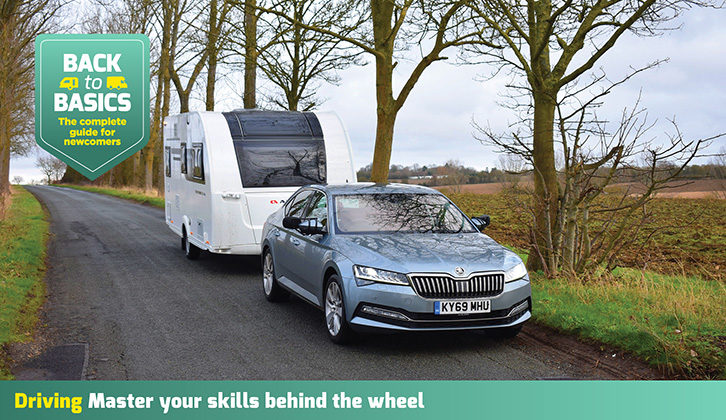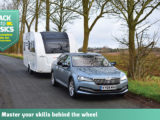Consider taking these items with you – it could make your caravanning experience a much more pleasant business…
1 A roofbox is a great way to transfer some of the weight out of the caravan and onto the tow car, helping you to comply with the 85% safety guidance. They are available from many outdoor gear suppliers, including Thule and Halfords. Once at your destination, they’re great for transporting wet and sandy swimming gear, towels, inflatables, bodyboards and so on.
2 Always carry a selection of spare fuses in your caravan, because blown fuses are very common. UK-spec fuses are not easy to obtain abroad or in rural Britain.
3 Take some of the legwork out of caravan breaks by booking a fully serviced pitch, and invest in a Truma Ultraflow or Whale Aquasource, which pipe water straight from the pitch tap into your tourer. No more filling a water carrier twice a day. They cost around £70.
4 Always pack a jack for your car and caravan, and always jack the van on its axle, not a chassis member. Keep the caravan hitched up to the car, and chock the opposite caravan wheel. Finally, never consider raising the caravan using its corner steadies.
5 It’s wise to carry a basic toolkit. Essentials are screwdrivers (flat and Phillips), pliers, Stanley knife and an adjustable spanner.
6 It can also be handy to pack a range of spanners and/or a socket set, a file and a junior hacksaw. Gaffer tape and WD-40 will also often come in useful.
Are you looking for more great driving advice and tips? Then head to our Back to Basics: Driving category, where we’re giving you the information you need to tow your caravan with confidence.
If you liked this, why not read these:
- Choosing the right towing vehicle can make all the difference to your experience on the road – our guide to the best tow cars could help you identify the ideal one for you
- We take a look at the best caravan gadgets to take on tour with you
- We shine a spotlight on common touring errors – and how to avoid them
Future Publishing Limited, the publisher of Practical Caravan, provides the information in this article in good faith and makes no representation as to its completeness or accuracy. Individuals carrying out the instructions do so at their own risk and must exercise their independent judgement in determining the appropriateness of the advice to their circumstances. Individuals should take appropriate safety precautions and be aware of the risk of electrocution when dealing with electrical products. To the fullest extent permitted by law, neither Future nor its employees or agents shall have any liability in connection with the use of this information. You should check that any van warranty will not be affected before proceeding with DIY projects.
If you’ve enjoyed reading this article, why not get the latest news, reviews and features delivered direct to your door or inbox every month. Take advantage of our brilliant Practical Caravan magazine SUBSCRIBERS’ OFFER and SIGN UP TO OUR NEWSLETTER for regular weekly updates on all things caravan related.








